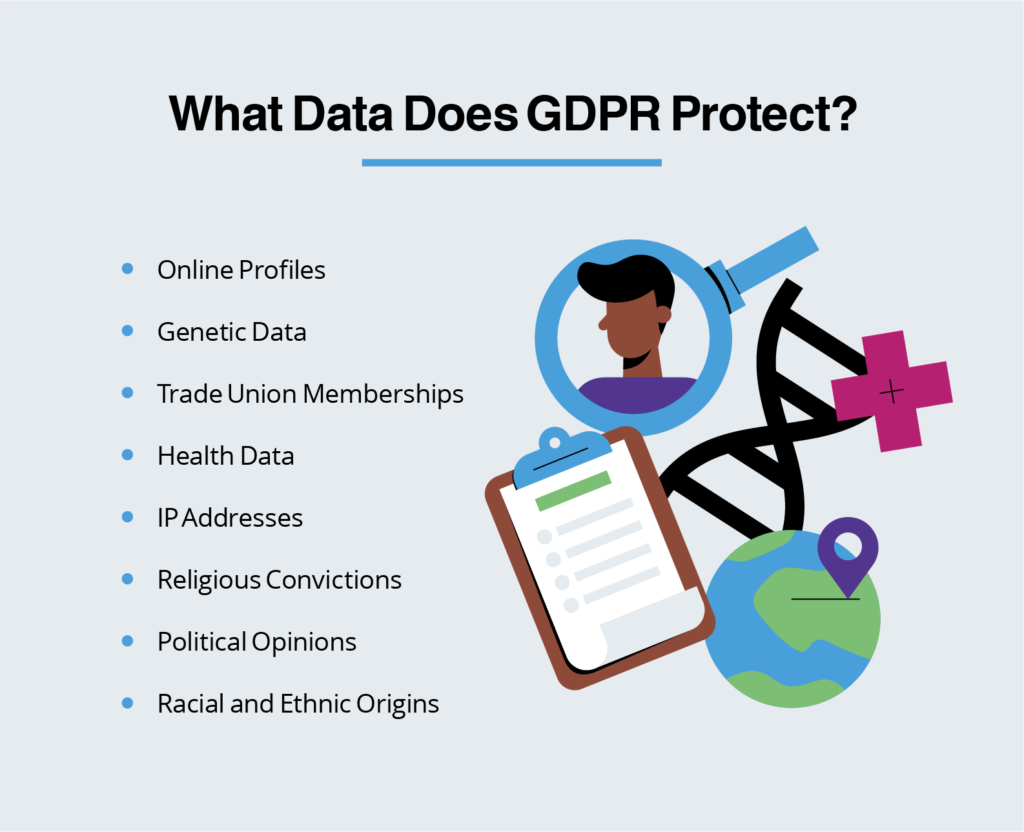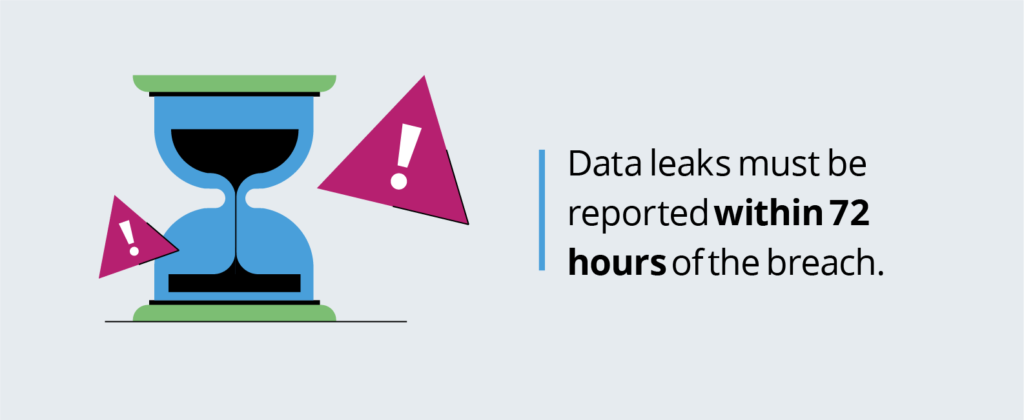General Data Protection Regulation, more commonly known as GDPR, is a set of data security requirements passed in 2018 by the European Union. Businesses must be GDPR compliant to ensure the data protection of Europe’s residents. Currently, GDPR laws are the toughest data and security laws in the world.
In order to help your business remain compliant with GDPR requirements when going global, we have created the ultimate guide on how to be GDPR compliant.
Key Takeaways:
- GDPR is a set of data security laws to protect Europe’s residents.
- You must comply with GDPR rules if your business transacts or has the option to transact with European organizations.
- There are extremely large fines and penalties for breaking GDPR compliance.
What is GDPR compliance?

GDPR compliance means a business follows the data protection regulations imposed by the EU. GDPR was created to protect EU citizens' personal data collected by businesses. These rules revolve around how a business must handle its consumers’ personal data.
Some of the personal data GDPR protects include:
- Basic identity information
- Biometric and health data
- Racial and ethnic origin
- Religious or Ideological convictions
- Trade union membership status
Who is impacted by GDPR compliance regulations?
GDPR affects all global businesses that transact or have the option to transact with European citizens or organizations. Although it is an EU mandate, it forces any business that comes in contact with its citizens to comply with GDPR rules. Due to this, almost every global business is impacted by GDPR compliance.
GDPR compliance checklist
The GDPR mandate is over 80 pages long, but there are a few key regulatory points that everyone in your organization should be aware of. A globalization partner can also help you remain compliant with GDPR and other international labor regulations.
Get consent of subjects for data processing
The GDPR mandate requires that subjects are aware of their data being processed. Many times, this is as simple as checking off a box at the bottom of a page or agreeing to terms and conditions.
Establish a data processing agreement
Under the GDPR, any company that hires a third party to process sensitive data must establish and sign a data processing agreement (DPA) with that third party that outlines how data is used, accessed, stored, processed, and protected.
Provide data breach alerts

If data is leaked from your company at any time, you must provide data breach alerts to the people whose data was compromised. These breach alerts must be performed within 72 hours of the leak.
Make it easy to request to view or delete data
Under GDPR, people should be able to easily and effectively request to view or delete their data. There are only a few grounds on which you can refuse this request. In general, all data must be deleted or able to be viewed within a month of the request being placed.
Handling the transfer of data across borders
When data is being transferred across borders, your company is responsible for making sure it is done in a safe and anonymous manner. You must have reasonable protection measures in place and should conduct Data Protection Impact Assessments and Data Protection Compliance Reviews regularly to ensure that risks are managed.
Appoint a data protection officer
Certain companies must prove that they have appointed a data protection officer. The companies required to have a data protection officer are any company that processes revealing personal data.
Use encryption or pseudonyms
GDPR requires companies to use encryption or pseudonymization of personal data whenever feasible. Companies can use built-in encryption systems for email, cloud storage, and messages.
Conduct data protection impact assessments
The GDPR requires this form of assessment be done any time a business plans to use people’s data in such a way that it is likely to result in a “high risk to rights and freedoms.” That said, this form of assessment is recommended any time a person’s data is about to be processed.
Conduct training
Teach your staff information about data privacy and why it is important. Then, provide training on the requirements of GDPR compliance. This training will be especially important for employees who have access to personal data.
Why is GDPR compliance needed?
GDPR requirements protect EU citizens' personal data. Refusing to comply with the GDPR mandate will risk personal data leaks, which can land your business in some deep trouble. GDPR compliance is needed by businesses in order to avoid devastating penalties, fines, and a damaged reputation.
What happens if I am not GDPR compliant?
Not following GDPR requirements when transacting with European citizens or companies can land your business in hot water. Here are some of the common consequences of businesses breaking GDPR compliance.
1. Fines and penalties issued
Non-compliance fines can reach up to 4% of your business's global revenue, which can be a devastating loss. There are also many penalties that can prevent your business from continuing to expand globally.
2. Damaged reputation
A reputation that involves non-compliance with international rules can affect your relationships with other countries, businesses, and consumers. Knowing that your company mishandled personal data is enough for others to refuse to transact with you.
3. Cost of damage control
The cost of a legal and PR team to perform damage control after not following GDPR compliance rules can be devastating. Since the mishandling of personal data involves so many people, it can result in many lawsuits and negative publicity. This will make for plenty of legal fees and press releases needed.
How to ensure GDPR compliance
If you are worried about your business complying with the GDPR mandate, consider hiring a global partner. A global partner or employer of record is an expert on all things going global.
A global partner can help you ensure that your business complies with the Global Data Protection Regulations. They can even help you create a GDPR compliance checklist with all necessary requirements of the mandate.
If your company is going global, GDPR compliance is a must to take into consideration. The next best step is to hire an employer of record, such as Velocity Global, to help you with your expansion journey.



